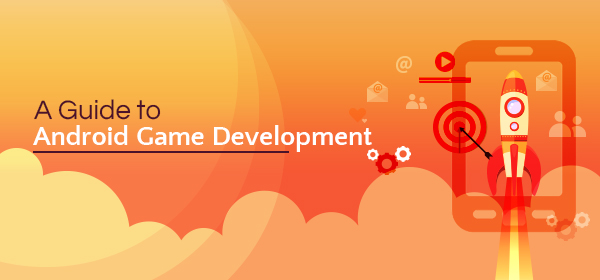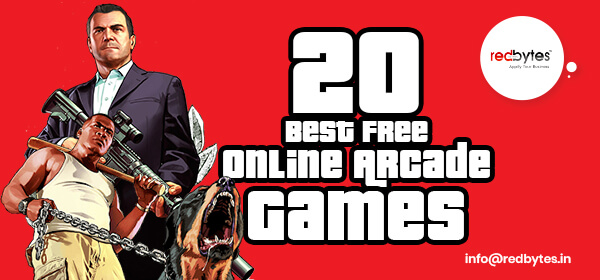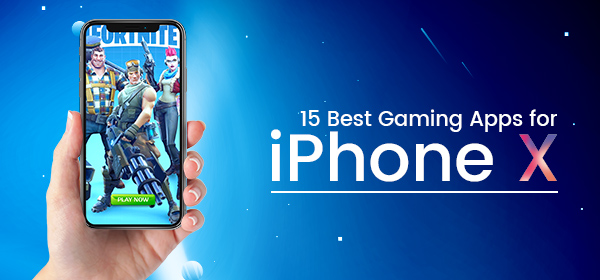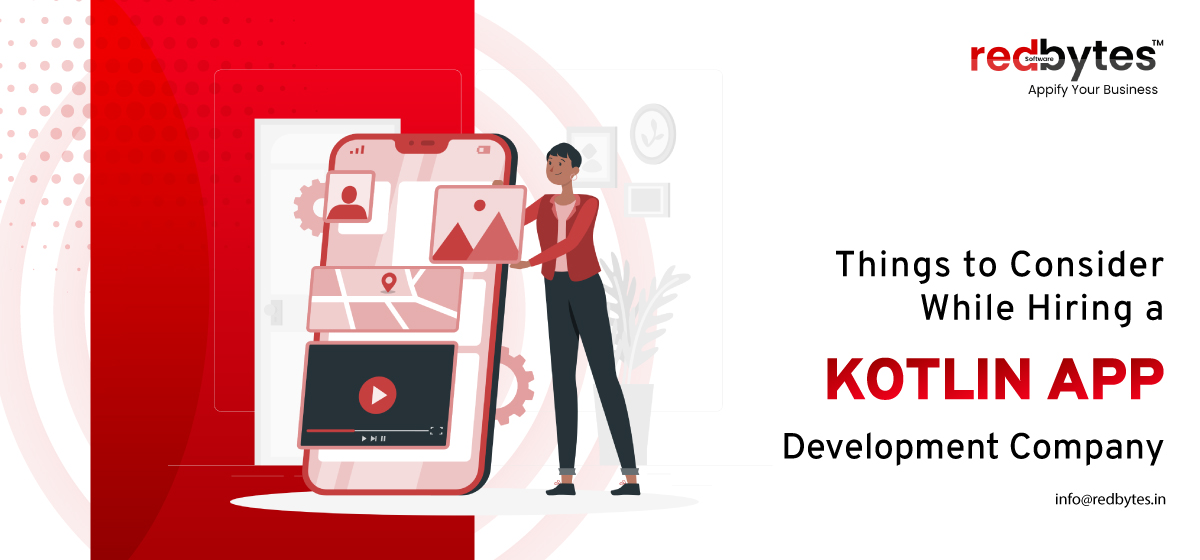Introduction
Game development is not just a profession limited to building games for PCs, consoles and other programmable hardware. Today, digital world is equipped with advanced gadgets and evolved technology that offer great portability, flexibility and engaging experience. Android is quite a famous operating system for mobile and is also used as OS for TVs, wristwatches, PC’s, digital cameras and consoles. Android game development became prominent when it was successfully integrated into many hardware platforms and the mobile game industry realized the importance of opting for Android over Symbian or Java. The reasons for the growth and success of Android development services are:
- Flexible and efficient software ecosystem
- Interactive features
- Intuitive and smooth user interface
- Customizable look and feel
- Developer-friendly characteristics of hardware platform
- Power to create more design elements
Because of these pros, Android game developers are thriving exponentially and developers go beyond the limitations to explore the wide spectrum of innovations based on Android OS.
Moreover, mobile games in Google Play store now claims 90% of profits. From simple and intermediate games to exceptional Android game apps, Google Store is crawling with thousands of big titles, and the numbers ceaselessly increase. So why do most game developers increasingly choose Android OS over other alternatives?
This guide covers many areas of Android Game development and focus on everything an Android game developer should know. People with existing background in Android or willing to learn about Android games will be able to imbibe a lot from this guide.
Android Game Development

Features:
Some of the significant trademark features supported by Android platform are:
a) Familiarity of programming languages
Android app development consists of most common programming languages like Java and C++ which are widely recognized throughout the entire world. Since Android SDK and NDK are built using known languages most developers are familiar with, developing Android games look much easier and swift.
b) Direct manipulation
Android is perhaps better worshipped for its unique interface that offers direct manipulation. This supreme feature makes it possible to interact with users by means of objects of interest, dynamic real-time action and feedback. Users can perform real-time gestures using touch interface such as swiping, tapping, dragging and also multi-touch actions. These are of great essence when it comes to crafting user-friendly and highly interactive Android game apps.
c) Sublime support
Another attribute that makes Android development a popular domain is its ability to provide excellent support for multimedia operations. Using multimedia supports, Android developers can gain freedom to use multimedia objects inside the game to enhance gaming experience for users especially those with live and sharable elements.
d) Updates and services
Google has tendency to always serve customers innovative updates that do something amazing to users. After its version 2.2 called Froyo, Google has cultivated an integrated, closed-system service known as Google Play Services. It a unique API service provider that has emerged quite useful for Android game development.
e) Ease of Game-making
Android is fertile with a gamut of third-party tools which further help make the job for game developers easy and agile. Some the tools that are illustrious in the world of Android development services are:

Apart from this, configuration procedure for Android device hardware easier for Android developers to understand and implement the steps quickly. When it comes to running game applications, the device hardware configuration offers minimum standard and feels less conditional.
f) Interaction with Device environment
What makes Android games special is that you can design different controls of a game by using a range of sensors available in Android mobile devices or tablets. Furthermore, Android offers solid connectivity via Bluetooth, Wi-Fi, LTE, GSM/CDMA/EDGE, IDEN and more. Due to such incredible support on various networks, game developers build a multiplayer game with uninterrupted gameplay.
g) Minimum-barrier ecosystem
Android ecosystem is generous in offering Android developers utmost liberty to explore the best features and tools to build sterling game design with vibrant characters and themes. Android relieves from the pressure of restrictive conditions for app distribution compared to other platforms.
h) Effortless submission/distribution process
The timeframe involved in the app submission process in the online Android market is leaner than other platforms because Android allows developers just one-time charges to submit the app. hence, developers can launch their apps effortlessly, engaging an enormous user base across the globe without spending huge. Another gem of Android app development is that developers can enjoy the incredible facility to distribute the app from their personal active channels or website, which eliminates the need to submit the app to Google app store and wait for approval and review.
i) User experience
Android games have a vibrant impression of providing a memorable user experience through incredible game controls and real-time interactions with gravity and GPS sensors based on the game theme, which is an added advantage. Due to dynamic gesture control and OpenGL enabled for better graphic visual quality, Android game apps deliver exceptional user experience. Android also supports Virtual Reality through Cardboard SDK to develop VR-based games.
Challenges:
Developing game apps using Android platform involves certain challenges such as:
a) Efficient use of available features
Utilizing the absolute power of Android’s available features in developing games would be the primary challenge for any Android app development services provider. Every game built on Android platform have to offer the best of features and engaging elements by seamlessly interacting device’s local functionality and environment.
b) Targeting the range of device configurations
Since Android hardware configurations have a wide range, games must be designed with the focus on targeting most of them to achieve maximum reach and touch the broad spectrum of users. Building games for specific hardware configurations like Tegra or Snapdragon, or for specific devices is common for Android games developers However, the challenge is that most smartphones, esp LTE handsets, don’t support Tegra and are migrating to Snapdragon, which provokes the questions of attaining consistent performance across various graphic processors.
c) Imagining a fascinating Story
When we are speaking about setting up a good story in mobile game development, we are referring to its story line ? or to the game’s dynamics in the absence of such story line. Creating a captivating story will always better when it comes to retaining users.
Believe it or not, creating Android games with a good and original story line is not easy. In fact, we could say “it’s all been done before” probably without failing to say the truth. There are hundreds of Android games that deal with war, fantasy, racing, etc.
d) Respecting User’s perspective
Another challenging part is making sure the game is simple, clear and user-friendly. This is not to say that the game has to be on basic or superficial level, but to say that it should feel and look intuitive and have easy-to-understand rules and levels even though it is strategic games you are building.
e) Design concepts and limitations
Without a proper, thoughtful design, an Android game does not really exist. A successful game design demands a lot of mature expertise about target devices including its interactive capability and support features. It is a challenge for designers and programmers alike to incorporate current trends and practices while crafting a spot-on structure of Android games along with common device-independent features.
Best Practices:
Building a user-oriented, highly engaging game with vibrant graphics and impeccable performance is as important as the idea of making it in the right way. It could be a real challenge for Android developers to enable the game design and components that not only look dazzling but also functions perfectly across most of Android devices. For this to happen, here are the best practices they can adopt:
a) The quality of concepts and creativity
Android game market is crammed with millions of games and more are introduced to Google Play store regularly. But not all of them deserve a chance to enjoy longest lifecycle on gamers’ device. Every Android developer must possess outstanding skills and creativity to leverage modern technology for building incredible games that can thrive on the competitive Android game development landscape.
b) Minimalist approach for User Interface
Long-form and prolonged UI could be a less pleasant design approach for today’s Android game development company and can repel impatient users. As opposed to hectic user interface, a modern and much typical practice should be a kind of interface that spends minimum time to take players to the core gameplay. Having minimalist and concise UI design ensures that the players will not have to pull more efforts to reach the real exciting part of Android games.
c) Supporting maximum devices & configurations
Many Android development services providers prefer to design games considering just one aspect: screen resolutions. However, this is not a good practice since Android comes with various configurations. Android developer should also filter target devices based on its configuration status.
d) Background activities
The subliminal part of game software continues to run in the background while the gamer is absorbed in the play. Such tasks known as asynchronous tasks are responsible for either fetching relevant information or processing large files. Asynchronous tasks also come into the picture when game is connected to internet, ensuring dynamic feedback without affecting the working of main thread.
Developers should utilize and harness background service features in the Android games to ensure uninterrupted game sessions for users and maintain fruitful communication with users. This way, game makers receive information regarding user experience for further improvements and users get notified about latest updates.
e) Battery power consumption optimization
Since Android device hardware is running on limited power capacity and big part of battery is consumed by network connections, power saving is an essential requirement for gaming. Android games are admired for its power efficiency. By focusing on proper visuals and technical aspects of graphics, game developers can save a lot on power consumption. The good practice for optimizing battery power is to build game assets that do not trigger excessive processing in platform environment.
f) Ensuring uninterrupted gaming experience
Interruptions occurring during the ongoing game could tarnish the gaming experience. Handling those external or internal interruptions is a tricky mission for Android developers. In any case, the gamers must be able to remain engaged with the game without a friction or pause. In Android games, the game often restarts after a pause or the game activity is killed post the prolonged idle state. Such instances hurt the progress of users.

The best approach is to save progress frequently to prevent the data loss. Hence, it is developer’s job to identify the moment when data or progress is saved without diluting gaming experience. The best way to handle it is to control pause/resume of running threads to ensure the game loop remains consistent after interruption.
g) Providing better visual quality
Apart from configuring games for different device screen sizes, Android game development should also essentially focus on supporting multiple resolutions for enhanced gaming experience. The available standard Android devices follow are:
- QVGA
- WQVGA
- HVGA
- WVGA
- SVGA
- VGA
Graphics of Android game apps can be shaped using this standard in order to achieve highest possible visual quality on assorted Android devices.
h) Social networking and multiplayer trends
The modern game development practices should incorporate social components with custom profiles for gamers. Some real-time multiplayer games online also support the concept of more than one user having the same game stats and interactions. The trend is more pronounced in board games such as Ludo, Snakes and Ladders, Chess, Monopoly and many more. Google Nearby of Google Play services offers multiplayer support and has launched a feature to enable close proximity among players on a single platform.
Introduction to Different Android Platforms

With HTC Dream, Android was first commercially launched in 2008. Being a Linux-based operating system, Android was used by immense number of Android developers ever since and became the most popular among other mobile operating systems. The major success of Android was attributed to its ability to offer smart new-generation technology that was unusual, user-friendly, light in weight and comparatively affordable.
Android device platforms have achieved greatest momentum which is clear from the record-breaking 76% of the digital market share in the first quarter of 2016. Since Android OS has sprawled from mobile to other hardware platforms (Tablets, Watches, Televisions, and consoles), games are not just restricted to PCs and consoles. Therefore, game developers need to understand different platforms and hardware in order to develop games
Here we are going to explore each platform insightfully, focusing on the Android game development aspect.
1) Android Mobiles
Introducing most competitive versions and updates over years, Android has brought glorious revolutions in its operating system and attained an unstoppable drive. Android has excelled in both software and hardware, leading the digital market with a significant margin.
More leverage, more polish
Having potential for constant, user-oriented innovations, Android devices are capable of giving rugged competition to its closest rival iPhone. This is why Android offers tremendous leverage to Android developers and game development companies.
Ever since Android 2.3 was released, Android reached the finest juncture. Many devices and cross-platform gaming engines support Android 2.3. From minimum initial specification of 32MB RAM, 32MB of disk space and 200 MHz processor, current Android devices specifications have drastically progressed to 1 GB RAM, 4 GB of disk space with 1 GHz processor.
Game portability
Ideally, it is important that the game built by Android developers should run consistently across multiple Android devices and configurations. However, a single game build can’t perform consistently across all devices. The game designed for Micromax Bolt A24 is likely to underperform on Samsung Galaxy S6 with poor quality. Hence, it is important to ensure game portability for all Android devices involved.
General Points to consider
Developers need to nurture decent knowledge of Android for game design and development. The following points will enhance your general awareness:
- Android is an expansive, ever-growing market
- Thousands of game apps are launched everyday on online stores
- The design and development is getting intense and trickier.
- Device configuration and price help determine the target audience
- Targeting maximum devices is a great practice to deliver best gaming experience
Technical features & points to remember
Getting technical about Android game development system is quite important for modern developers. Here are certain features & points:
- The variety of mobile display & resolutions
- A wide range of Pixel density
- A wide range of RAM capacity
- Multi-touch Interface and full-screen experience
- Sensor support for GPS location, compass, ambient light, accelerometer, etc
- Different Types of processors, speeds and performance
- Network connectivity strength
- Instances of interruption
- Battery life
Essential pros behind Android’s success
Due to its unrivalled profitability, Android devices sweep through the mobile gaming market, creating better opportunities compared to other mobile OS. Android platform is the primary choice for today’s developers for building Android games because of:
- Incredibly vast user base
- Constantly improving development ecosystem
- Best advertising platform for advertisers
- Liberal game publishing terms and conditions
- Extremely intuitive and user-friendly UI
- Ease of transactions on popular ecommerce stores
- Ease of cross-promotion of games and apps
2) Android Tablets
Started as a device for experiencing an enhanced view of objects, Tablets have come a long way ever since its inception and became a daily lifestyle device for better digital gaming and entertainment experience. Through tablets, Android helped redefine an all-new category of user-oriented devices in the digital hardware market, evolving year after year. Here is what Android developers need to know about Android tablets.
Fact files of Android tablets
- What differentiates Android tablets from Android mobile devices is its physical screen size and resolution.
- Usually, Android tablets are bigger, slightly heavier and less compact than smartphones.
- Android tablet has a lower PPI than a mobile and requires minimum specifications of 200 MHz processor, 32 MB RAM, and 32 MB disk space to work.
- Due to good battery capacity, tablet-specific games need to be energy-efficient.
- Latest android version 4 requires advanced ARM v7 though initial-stage tablets had low-grade hardware system with humble configurations.
- Modern tablets are getting better and emulate smartphones as smartphone size is growing bigger and more enhanced.
- Nowadays, tablets support most smartphone features, opening new doors for Android development services However, the use of tablet as a phone is gradually diminishing.
Tablet Evolution
Tablets have interestingly grown from the perception of tablet computer to smartphone equivalent with inclusion of smart features like camera, touchscreen display, speaker, microphone, GPS and native apps, reader-friendly interface and dedicated physical buttons.

Surprisingly enough, 2013 saw Android tablet sales growing to 62% which accounted for over 121 million devices globally. Amazon Kindle Fire devices sale touched 7 million as well. Owing to so much demand for Android tablets and Android game development, the configurations have also improved.
3) Android Televisions and STBs
Inspired by the emerging market of smart TVs, Android saw Television platforms as a next big thing especially after hitting great success with mobiles and tablets. Google made Television set an interactive experience and to make it more enhanced it launched additional accessories to go with Android televisions.
Breakthrough Names in Android televisions
- Nexus Player was the first Android television launched for consumers on November 3, 2014.
- Forge TV was announced by Razor in January 2015 and had impressive hardware specs.
- Shield Android TV was announced by NVIDIA in March, 2015 and has everything that can overshadow 8th gen consoles. Its hardware is equipped with an NVIDIA-branded game controller.
- Arcadyan Bouygtel TV is from a French Telecom company and was announced in June 2015. It comes with an integrated STB code-named as “Miami” based on Android TV.
4) Android Consoles
Console set is made of an adapter and a device dedicated to control the adapter which is connected to a TV set. Android game consoles thrive on two major benefits:
- Cost-effective, economical operating system
- Easy and simple integration with any mobile hardware platform
Points of consideration
Being exclusively dedicated to enhancing user’s gaming experience, Android consoles fulfil the objective quite satisfactorily. Above examples of different console specifications are enough to signify the improvements and advancements introduced over the years in Android game hardware.
Android developers should:
- Target specific device for consoles
- Portable games should be compatible with console quality
- Focus on excellent game performance
- Build games that engage wide user base
Being an Android developer, it is good to explore the entire range of modern-age gaming platforms instead of just opting for conventional ones like Tablets and mobiles. In this time of rapid changes, developers should update their technical expertise.
Game consoles at present
Recently, the gaming market is flooded with glorious game makers like Amazon, Google and other top names giving tough competition to supposedly dominant platforms for console games such as PlayStation 4, Xbox One, and the Nintendo Wii U.
Leaders like Amazon and Google are all emerging successful in the Android game development arena, creating competitive console hardware to give gamers of all kinds an affordable way to play their favourite games with utmost comfort.
The future road for Android gaming consoles
Because of ongoing evolution in Android-based gaming console platforms, the future market for Android games are all set to perform well. Users are increasing and so is the number of games on Android platform.

It is evident that in near future, Android is likely to be the confident choice for the vast base of console players. Android will grow bigger in console game market, opening a new era of opportunities for Android developers who are ready to shift to Android consoles now.
5)Android Smart Watches
The wave of smart technology entered wristwatches as well, digitalizing the analog world of watches to make it smarter, interactive and purely computerized. The flexibility of open source Android platform offers gigantic opportunities and options for building sophisticated, user-friendly smartwatches.
Smartwatches for game development
The trend of playing games on Android watches started from its early days, which encouraged enhanced capabilities in Android game development domain. These tiny devices are no less advanced than computers with integrated features like internet connectivity, sensors, Bluetooth, Wi-Fi, card slots, real-time notifications and GPS and much more.
Smartwatch replicates computer in many ways such as:
- Collecting information from internal/external sensors
- Retrieval of data from other devices or instruments
- Displaying real-time push notifications or messages
- Support for location-based alerts, Wi-Fi, Bluetooth
- Interactive control of data with other digital instruments
The latest in the Smartwatches
As the latest smartwatches have advanced, it offers more class features mentioned below:
- Finding directions by voice from phone
- Selection of a transport mode for journey
- Tactile interaction to indicate turns
- The use of smartwatch for controlling the smartphone
- Better control and management of personal requests
Thus, users can travel without looking at their watch screen or phone. They can even have Android smartwatch control their phone.
Android wearable makers constantly upgrade their devices to integrate latest standards and technology trends in their hardware. Hence, while crafting Android games for smart watches, developers should consider specific configurations of the device.
We have realized that Android game development landscape has gone through great changes and boost when it comes to hardware and software upgrades. This turns the equation for the Android gaming market as well as application development methods.
Android Game Makers

The domain of Android game development is blooming with many development tools. You will require the right set of tools to make a successful Android game. There are plenty of popular game makers and engines, each with different capability to the other. From our industry-wide experience, we have composed a list of hand-picked tools to help you build your dream Android game.
Based on their calibre and complexity level, we have divided the list in 3 major categories where Expert level Android game makers are being the most illustrious engines equipped with maximum amount of power, Mid-Level makers are aimed for Android developers with intermediate experience whereas Entry level ones are for those who are beginners embarking on building their first ever mobile game.
To help your game development journey shine, here is the list of tools:
Entry Level Android Game Makers:
1. GiderosMobile
GiderosMobile is a highly customizable and productive game development engine that has recently been made open-source for Android developers. Great for entry-level game developers, it is based on C/C++ and OpenGL and has excellent power to make give your app the run speed of native apps.
It has enormous market of third-party plug-ins and the IDE offers everything you need to build outstanding game elements. Its forums exhibit quite a dynamic, thriving and cooperative community. GiderosMobile offers easy learning curve, speed in testing apps and reliable OOP support for leading platforms like iOS, Android and Windows.
The tool has created impressive games such as Miner Z and Galactic Blaster.
2. Fusion 2.5
Fusion 2.5 is an amazing scripting tool that would be the appropriate choice for building simple 2D games. It is especially helpful if you wish to create Android games with side scrolling shooters and point-and-click themes. It offers basic and developer version with a modular price plan for building Android or iOS games. Developer version is meant to give you more power with monetization features and in-app s.
It is available on Steam and provides luxury of visual programming, fast-and-easy learning curve. It comes with a free version. Additionally, you can pay only for what you want in the game though extra modules cost you more money.
Several successful Fusion 2.5 games include Dead of Day, Lost Jelly, and Megacity.
3. Engine001
Released in 2006, Engine001 was relaunched on Steam in 2015 and is packed with both graphical and text scripting tools. Graphical scripting works well for Android developers with limited or no coding experience whereas text scripting is best for those with some level of experience in coding. Typically supporting retro-type Android games, Engine001 can be used for Android, iOS and Windows and building 3D games as well.
It also offers free version. The best pros are its relatively affordable cost compared to other game makers on the list and its great environment for programming.
Its prominent real-time examples are The Soul Master 1 and Solitary.
4. GameSalad
Considered as quite an intuitive platform, it enriches Android game development experience with drag-and-drop interface. With GameSalad, developers are sure to learn different game creation concepts. Though it does not support full 3D feature and has limited graphics, it nonetheless supports major known platforms without a need for additional coding.

It is simple to use and has good prototyping. Its in-app testing tool facilitates incredible game testing, which is a boon to any Android development company since you can see the performance of your app across each platform. GameSalad also relishes reputation of developing games that make it to top 100 games in the App Store.
It has a free version, too. The top example of GameSalad is Volty.
5. Stencyl
Stencyl is a quite a suitable choice for beginners in game development since it is a cross-platform game engine that supports behaviour-based programming. It is packed with impressive visual tools including textures and sprite creators. To explore its various features (like drag-and-drop interface) and other tools, Stencyl offers Android developers a free web publishing version.
It has good pricing plans for publishing on Android. Stencyl has a “high level Lego block” style of development though it allows you to change the code for visuals. The downside is, it only supports tile-based 2D games and has little collaboration support and no offline documentation.
Some of the games built using Stencyl are Ghost Song and Mibibli’s Quest.
Mid-Level Android Game Makers
1. GameMaker Studio
Released in 1999, GameMaker Studio is one fantastic Android game development tool that has been featured in the Humble Bundle many a time. It uses the GML language and the library of pre-set events to create games and develop in-game actions. It affords an intuitive game development experience to users especially to those who have some knowledge in the domain.
Simple to use, GameMaker Studio also has a wide support community and has a free trial version. It supports Android 2.3 and onwards, and it clear from the level of complexity that it might not be a good choice for a complete novice.
The tool has created remarkable hits like Tiamat X, Hotline Miami, Default Dan, Spelunky, and Savant – Ascent.
2. GameBuilder Studio
GameBuilder Studio has multi-layered editor along with drag-and-drop interface. It has extensive assets store on its website and experienced developers can build games by adding custom code. The platform includes great support especially for Ouya Android console and has Spine Pro integrated to enable users to create modern 2D animated characters through procedural bone manipulation.
It has free version available for Android developers. However, its pricing plans are pretty relaxing with one-time payment though its multiplayer support has quite a high price.
3. Appypie
Appypie is a relatively new in the domain of game creation and aims to provide tools for non-coders to build Android game apps. Greatly flexible in its price plans, Appypie offers variety of options for aspiring and emerging developers. Like several game creators in the list, this one also provides drag-and-drop UI along with ready-made templates.
It contains out-of-the-box templates and is quite easy to use. It has its own marketplace so that developers can publish directly to it. However, job of publishing or submitting to App Store or Google Play is manual. Its free version has 24 hr trial. Its fresh arrival also means lesser user reviews.
4. Moai
It is quite a straightforward game maker that comes free and open-source. It has ability to create games for almost every platform available in the digital market. It is based on Lua and uses C++ for programming. It effectively works with Linux and Mac and Windows. Android developers are sure to find it easy to write games in clean code using Moai platform.
The main flexibility of Moai lies in instructing developers about how to do things. However, as a beginner, you may struggle getting on with game design without necessary coding. Also, documentation is not enough in Moai.
Best examples of Moai-made games are Freedom Falls, Invisible Inc., Lost in Paradise.
5. Corona
Created by Corona Labs, Corona is a famous Android game development tool. Extremely polished, it offers free version along with three price plans. The pro is that it comes with extensive API documentation. It supports cross-platform development for iOS, Android and Kindle. The games built using Corona impress with great visual appeal and simple monetization options.
Since it lacks visual scripting tool, Corona is suited for those with some level of exposure in game programming. Developers can easily get started with Lua on which the tool is based. Corona has strong community support and better emulators for testing with “right once, run anywhere” facility. However, it has limited plug-ins and certain add-ons are paid.
Corona game examples are Streetfood Tycoon, Gravity Maze.
Expert Level Android Game Makers
1. Unity 3D
Unity 3D is on the top of the business and offers full support for 3D game development. It is by far the most exquisite, sophisticated tool admired for the crème-de-la-crème of features. Along with its incredible development suite, it provides a great range of tools for monetization tools. Unity 3D is free as long as your game revenue does not cross $100,000 per year.
The platform is graced with massive community and support network and has been used to create the most singular titles in Android game apps. However, the expenses increase with extra features, add-ons and access to the source code.
Some of Unity 3D big hits are Monument Valley, N.O.V.A, ChronoBlade.
2. Unreal Engine 4
After Unity 3D, Unreal Engine 4 is an eminent name in the world of Android game development and a superhit tool as well. It has a highly sophisticated set of tools and offers a full 3D support. It gives you complete access to its C++ source code. It has a free version, and its pricing plan follows a royalty-based system in which the services remain free until certain limit of game revenues. Then it demands 5% of royalties.
However, you also have a choice of one-time payment. It equips users with visual scripting, reliable UI and has extremely active community along with ample resources, including tutorials videos and documentation. The downside is that it comes with few extensions and offers poor collaboration and workflows creation.
Unreal Engine 4 game examples are Shadow: Deadzone, Epic Citadel, and Wild Blood.
3. Marmalade
Marmalade has been acquired by GMO but its SDK is still available. It is considered to be a high-end cross-platform development solution and it is agile in developing Android games. Due to its low-level language, one can experience rapid pace while running the app. Moreover, its significant pro is the facility of “write once, run anywhere.” The engine has got great support for physics and building 3D games.
It requires no Mac for iOS code compilation and delivers brilliant performance for an Android development services provider. However, Marmalade is not for beginners since it requires extension making and involves good amount of coding in place of visual scripting.
Some of Marmalade games are Plants vs. Zombies, Bejeweled Blitz.
The Android Game Development Process

The quality of Android games is directly related to the game development practices, tools and innovative approach taken to create it. The development process has to be clean, modern and full of creative components. The entire cavalcade of designers, project managers, developers, thought leaders and testers must form a unique, synchronized structure that complies with best industry practices to ultimately give a shape to a stunning Android game app.
Usually, based on latest standards and general Android game development practices, the development process should cover the following segments with utmost precision:
1) Project Estimation
Project estimation is the first and foremost part from where the game development process actually commences. Based on the game specification sketch communicated and conceived by the client, the estimation is prepared by the Android development company. The estimate includes major and most influential components of games along with the general cost of their development. After estimate is approved by the client, the next phase to consider is Requirement Analysis.
2) Analysis
There are four significant slices of game analysis we need to penetrate before going further down the process line.
Requirements:
The head of project management analyzes different aspects of Android game and assesses its various features to be included. The person in charge studies precisely the client’s requirements and expectations and scours through the available resources needed to build specific components of Android games. Based on software requirements, the designer composes a script or a storyboard.
Resources:
Resource analysis determines the availability of staff, their skill level, potential, technical tools and software, testing hardware and other material required to fulfil the entire process. After the complete analysis of resources, they can be more accurate about estimating project size, development cost estimate and timeframe involved.
Scope:
Android game apps must have predefined scope with certain limits. The scope of game design is a technical subject that focuses on minimum required configuration, project-specific configuration, recommended features and target device configuration to build game with flawless performance.
Risks:
Risks analysis is quite mandatory for it helps developers find the solution as the time of problems and technical incidents. For instance, during the Android game development process, there might be the need to address the changes in technical requirements, game design or external outsourcing partners. It all depends on the expected game quality. While calculating the risks, the main project flow should not be affected.
3) Game Design Aspects
The game design phase entails the game essentials such as UI flow and game play mechanic development. This is where concept art also takes the shape. The Android development company put together the design documents like:
- Architectural design structure
- Database design
- Class design
- UI flow
- Gameplay mechanics
Once prepared by the team, the game design documents along with UI flow and gameplay are eventually forwarded to the client for review and approval. The reviews and feedbacks from the client on game design are further considered by the project leader and team members during the successive meetings.
Concept Art design
At this stage, creative team of artists and designers gear up for creating different characters and core assets of the game and prepare concept art of the project in its raw, unpolished form. Android games designers prepare and send the concept art document along with 2D images of characters closely matching client’s requirements. The client then suggests desired changes in the concept art model, which, after the approval, leads to the Art development phase.
Art Development
Here different game elements and assets are mulled over and developed, which necessarily includes graphics, 2D and 3D models followed by the concept art. The art development has many segments such as modelling, texturing, unwrapping, animation, visual effects. For this, designers leverage software resources such as Blender, Maya, Adobe Photoshop, ZBrush or others to finish developing the game art.
4) The Core Game Development
The crucial phase of Android game development now takes off. Developers garner and use most suitable game engines and tools to bring the concept to reality. The game builds are often share with customers during the process to make sure feedback are implemented to adjust the look and feel of the game to user satisfaction. Developers work on code reviews, testing and bug fixing to refine the game. It is better to choose game engine that enables multiplatform support across iOS, Android, PC, Mac, Web, Consoles and TV.
5) Polishing Android games
The final polish speaks a lot about the Android games and their personality. Since polished game has better visibility, performance, and user experience, it is better to improve certain aspects of the game to ensure the best user experience. Android developers should dedicate time to polish the game elements before it is ready for release since it demands substantial amount of time and is important to retain maximum happy users. Under the directions of product manager, the whole team of designers, artists and developers come together to achieve target polish.
The three major areas for game polishing are:
Development polishing:
It goes deep into the technical and engineering aspects of the game development to enhance the playability of the game. The main parameters addressed in development polishing are memory optimization, code refinement, performance optimization and portability.
Art polishing:
The target area of art polishing is to ensure much better visual quality to users by polishing the game art. Game art can write the fate of the Android games especially for Android where varieties in device visual quality are ample. Art polishing mainly touches on UI, animation and graphics.
Design polishing:
Despite the fact that the design comes during the production phase, it is critical to polish the design post development to achieve improved quality in the final game app. It emphasizes user-specific areas such as the game flow, meta game improvement, UX design, game difficulty adjustment and game economy.
6) Quality Assurance & Testing
Android basically is the most diversified platform with numerous devices having varied screen sizes. This is why the QA testing team needs to test Android games precisely to optimize its performance across multiple devices. They must make sure all the game functionalities work smoothly on different environments. Testing is done using detailed testing plans and different combinations of use cases.

The game should be checked for its performance, gameplay consistency, device compatibility and user experience. Beta testing phase is also conducive to adjusting game difficulties and controls to the preferences of the target audience. For this the game is released to a preferred external user group.
7) Launch
This is the conclusive phase of Android game development. After implementing the client’s feedback for enhancing the game features and functionality, it is appreciable to think of user acceptance testing before it is finally released to the respective app stores marketplace. After the evaluation and approval from the client, it is time to publish the app in the Google Play store.
8) Maintenance and Support
Ideal game development process should extend beyond the launch of the game since the Android game needs to be updated from time to time. Developers must prepare for additional support and maintenance long after the game is launched to the market so that it can enhance the chance for client’s games to perform the best in the competitive domain.
To create a high-quality Android game, you will need to partner with a reliable and versatile Android development company who is committed to deliver all the latest technologies, industry-grade experience, updated knowledge and creativity and support needed to build your dream Android game.
Cost of Developing an Android Game App

If you are thinking of developing an Android game, you must know that the entire process from concept and planning to execution and to making your game live on Google Play is both overwhelming and painstaking. It requires a lot of specialized expertise to build perfect Android game apps with incredible user experience. However, a lot of game-constructing depends on the budget, which is a crucial factor in justifying the number of challenges and resources invested in the game.
Mainly, when it comes to Android game development, the developers calculate the cost with enormous focus on:
- Desired features and UI flow
- Project level and class
- Gameplay mechanics
- Technological resources
- Expectations about User Experience
- Allotted Timeline
- Post-development involvement
In order to achieve the perfect balance between desired results and expected budget, the team of Android developers and the client must synchronize together on various game aspects including game idea, economy and availability of resources and time constraints.
A Glance at Major Cost Drivers
The major part of the budget possibilities receives clarity when the game is in its conceptual stage. If you want to clone an existing Android game app or already have a tested model on paper, a good chunk of your investment will be saved and can be used for more significant activities later.
If you lack a powerful game story, characters, graphic vision, background music and UX perspective, the integration of all such essentials into Android games will cost you a bit more.
If the game you want to build has simple design and straight arcade structure, you will get more relaxed around cost constraints. Simple the design, more easy the UI would be, which further shrinks down the investment considerably. On the contrary, as the levels and contents of the game grow complex, your budget should be enough to accommodate changing requirements.
Mid-level and high-level Android game apps with outstanding features and graphics require sharp skills and experience often found in outsourcing partners. In many cases, recruiting dedicated designers and developers for outsourcing the game creation helps optimize the Android game development.
1) Mini Game ($5k to $25k)
A simple mini game with basic features and theme is going to cost you around $5000 to $25000. Here the idea of small game consists of 2D appearance, simple visual style and graphics, plain characters and straightforward gameplay with single level like Flappy Bird.

If it is a clone or re-skin of existing Android games like Pac-Man, you can have it built in less than the mentioned price bracket. However, note that grand-scale expectations rarely go hand in hand with limited budget and may see you ending up with mediocre product.
2) Basic standard Game ($25k to $70k)
Basic games bracket includes a range of medium-budget adventure or Indie type games. If you are looking for paid games with great value for users, you will realize that you should be willing to invest justifiable amount of money for your game development project. When you approach an Android development company for estimate, the usual price estimate for basic game quote you will hear sits between $25k and $70k.
3) Medium Game ($70k to $100k)
The games with more depth of content and detailed mechanics fall in the category of medium scale games. Many independent games that have more layers of levels, exciting storyline and interesting characters join this price bucket. Due to its mature design and replayable material, such games successfully capture the wider audience. Temple Run, Angry Birds (early version) and Cut the Rope belong to this bracket.
4) Large complicated Game ($100k – $250k)
Android games of this calibre are hit titles of grand scale and demand great attention and investment. Often they are funded by publisher or investment partners especially when a small team of Android developers take on the ambitious game development project. In this category, it is most likely that the game has both free-to-play and premium versions requiring small transactions to support monetization within the app. Here the content complexity and gameplay go even larger and deeper.
5) Very High-Quality Game (Over $250k+)
This is where things go biggest and expectations touch the highest bar. Very large, high-end games will involve the streamlined job from veteran developers, large studios and intrepid publishers. The scope of this kind of Android game apps is quite enormous with rich graphics, powerful features and engaging gameplay. The cost of development may touch even 7 figures in some cases. Famous Titles like Clash of Clans and other paid hits like Infinity Blade 3 fits into this bracket.
Summary
Here you learned about various facets of Android game development cycle that can help developers make right decisions to achieve success. There is no doubt that Android dominates the global smartphone market with increasing number of users across all demographics contributing to the success of Android-based games. Such splendid influence of Android OS opens immense opportunities for Android developers to craft brilliant, high-quality games.

Making a good game with excellent graphics and design requires a lot of efforts and agility from today’s developers and designers. You surely need a perfect combination of a right publisher, experienced Android development company and target audience down the road.
At Redbytes, we understand the precise requirements and specifications of the client and have worked on wide range of games including arcade, puzzle, action, adventures, strategy, education, social, RPG, MMO and board games and more. If you have a game plan to discuss, you may contact us to build a solid game development strategy.
Exclusive Bonus: Download PDF




























